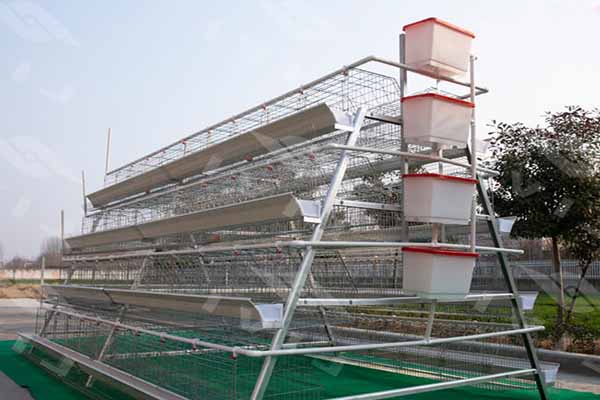Kenya Chicken Farm automated Equipment: Boosting Reputation through Advanced Technology
Time : 2025-06-29
The poultry industry, like any other agricultural sector, is constantly evolving to meet the increasing demand for high-quality products and efficiency. Kenya, with its vibrant poultry sector, has seen significant advancements in the adoption of automated equipment in chicken farming. This article explores how the integration of cutting-edge technology has bolstered the reputation of Kenya’s chicken farms.
Introduction
Kenya’s poultry industry has been witnessing a surge in automation, particularly in the implementation of specialized equipment. These innovations have not only improved the efficiency of chicken farming but have also enhanced the industry’s reputation on both the local and international stage. This article delves into the automated equipment used in Kenya’s chicken farms, their impact on farm reputation, and how they contribute to overall productivity.
Automated Equipment in Kenya’s Chicken Farms
1. Feeders and Drinkers
Automated feeders and drinkers are integral components of modern chicken farms in Kenya. These machines are designed to ensure a constant and precise supply of feed and water to the birds. They can be programmed to operate at specific times and adjust the amount of feed and water based on the age and breed of the chickens.
The use of automated feeders and drinkers has several benefits:
– Enhanced Growth Rate: Proper nutrition is crucial for optimal growth in chickens. Automated feeders and drinkers provide a consistent supply of nutrients, resulting in faster growth rates.
– Reduction in Waste: Automated systems prevent overfeeding and waste, which is both cost-effective and environmentally friendly.
– Improved Hygiene: The elimination of manual handling reduces the risk of contamination and disease spread.
2. Climate Control Systems
Climate control systems are crucial in chicken farming, especially in areas with fluctuating temperatures. Automated climate control systems in Kenya’s chicken farms maintain optimal temperature and humidity levels, which are essential for the well-being of the birds.
Benefits of climate control systems:
– Reduced Mortality Rates: Consistent temperature and humidity levels reduce the incidence of disease and mortality in chickens.
– Increased Egg Production: Comfortable living conditions enhance egg production and quality.
– Energy Efficiency: Automated systems optimize energy usage, reducing operational costs.
3. Egg Graders and Packers
Egg graders and packers are highly advanced automated equipment used in Kenya’s chicken farms. These machines accurately grade and pack eggs based on size, shape, and color. The use of egg graders and packers has several advantages:
– Improved Reputation: High-quality, uniform packaging enhances the farm’s reputation and increases consumer trust.
– Efficiency: Automated systems reduce labor costs and minimize the potential for human error.
– Longer Shelf Life: Proper grading and packaging extend the shelf life of eggs, reducing waste.
4. Flock Management Systems
Flock management systems are cutting-edge automated tools used for tracking, monitoring, and managing the flock’s health and growth. These systems typically include sensors, GPS, and real-time data analytics.
Advantages of flock management systems:
– Predictive Analytics: Data-driven insights help in making informed decisions regarding vaccination, nutrition, and health management.
– Reduced Disease Outbreaks: Early detection of health issues allows for timely intervention, minimizing the risk of outbreaks.
– Increased Productivity: Efficient flock management leads to higher productivity and better returns on investment.
The Impact on Farm Reputation
The adoption of automated equipment in Kenya’s chicken farms has had a significant positive impact on farm reputation. Here are some key factors contributing to this:
– Quality Assurance: The integration of advanced technology ensures the production of high-quality poultry products, which enhances consumer trust.
– Environmental Responsibility: Automated systems are designed to minimize waste and environmental impact, making Kenyan chicken farms more sustainable.
– Global Competitiveness: The use of state-of-the-art technology allows Kenyan chicken farms to compete with international counterparts in terms of quality, efficiency, and sustainability.
Conclusion
The integration of automated equipment in Kenya’s chicken farms has transformed the industry, leading to improved productivity, efficiency, and farm reputation. As the poultry sector continues to evolve, it is evident that embracing cutting-edge technology will be key to staying competitive and maintaining a strong reputation in the global market.
Tags












